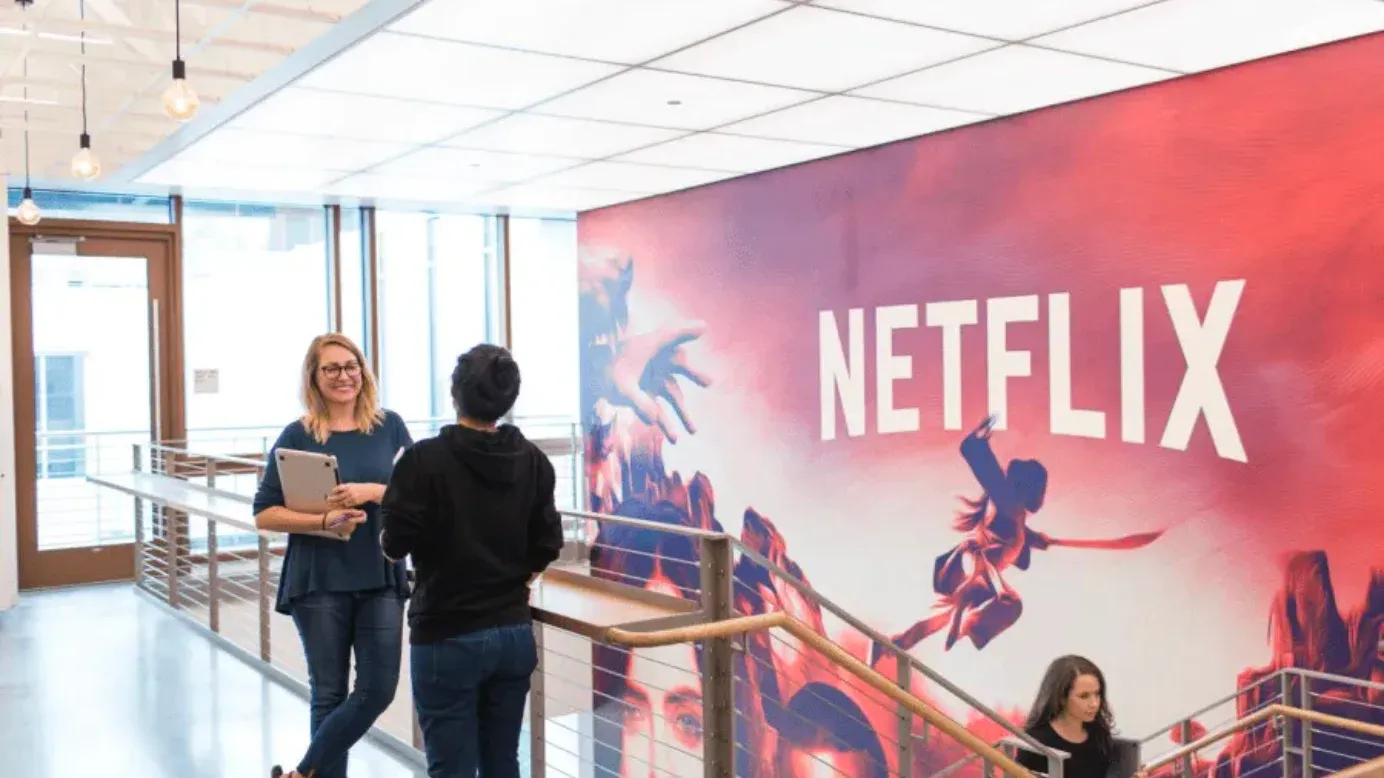Apa itu Kesesuaian Budaya Bagaimana cara menilainya untuk membangun budaya tempat kerja yang kuat
Pelajari cara menilai kecocokan budaya dalam perekrutan, meningkatkan keselarasan di tempat kerja, dan membangun budaya organisasi yang kuat yang meningkatkan keterlibatan dan retensi karyawan.
Di halaman ini
- Apa yang dimaksud dengan kesesuaian budaya?
- Mengapa kesesuaian budaya itu penting
- Bagaimana kesesuaian budaya membentuk budaya perusahaan
- Memahami hubungan antara kecocokan budaya dan retensi karyawan
- Cara mendorong kesesuaian budaya untuk retensi dan keterlibatan karyawan
- Tes dan metode penilaian kesesuaian budaya
- Contoh dunia nyata dari penerapan kesesuaian budaya yang sukses
- Kesimpulan
Selama lima tahun terakhir, ada kesadaran yang berkembang tentang dampak substansial dari budaya organisasi. Contoh kasusnya adalah profil Amazon dan pendirinya, Jeff Bezos, di The New Yorker.
Meskipun menjadi salah satu perusahaan paling sukses dalam dua dekade terakhir, artikel ini tidak terlalu berfokus pada pengiriman satu hari yang mengesankan atau prestasi logistik mereka dan lebih banyak pada pembangunan budaya mereka budaya mereka di sekitar 14 prinsip utama. Amazon sengaja mempekerjakan individu yang sejalan dengan prinsip-prinsip ini, dengan menekankan pentingnya "kecocokan budaya".
Melihat kesuksesan perusahaan seperti Amazon, yang menghasilkan pendapatan sebesar $386 miliar selama pandemi, konsep "mempekerjakan karyawan yang sesuai dengan budaya" telah menjadi topik yang menonjol dalam satu dekade terakhir. Namun, penekanan pada kesesuaian budaya ini telah menimbulkan kekhawatiran tentang potensi bias dalam proses perekrutan.
Para kritikus berpendapat bahwa hal ini dapat menyebabkan budaya berpikir kelompokyang menghambat munculnya ide-ide baru dan inovatif. Para profesional di bidang keragaman, kesetaraan, dan inklusi (DEI) sering menggunakan istilah ini dengan hati-hati karena istilah ini menunjukkan bahwa mereka mengecualikan individu berdasarkan alasan yang tidak jelas dan tidak terkait dengan data seperti "Dia terlihat seperti kita!"
Lebih sering daripada tidak, istilah "kesesuaian budaya" tidak cukup untuk menandakan komitmen untuk membina lingkungan yang inklusif.
Konsep perekrutan yang sesuai dengan budaya berkisar pada memastikan kecocokan yang harmonis antara kandidat dengan nilai-nilai dan norma-norma bisnis. Pendekatan ini bersifat dua arah - perusahaan tidak hanya mencari kandidat yang sesuai dengan budaya mereka, tetapi juga calon karyawan, terutama Generasi Milenial dan Gen Zjuga secara aktif meneliti dan mengevaluasi keselarasan budaya calon pemberi kerja.
Blog ini akan membahas makna yang tepat dari kesesuaian budaya dan mengeksplorasi alasan mengapa hal ini sangat penting bagi bisnis dalam lanskap kontemporer.
Apa yang dimaksud dengan kesesuaian budaya?
Kesesuaian budaya mengacu pada keselarasan antara nilai, keyakinan, dan perilaku individu dengan nilai-nilai organisasi. Hal ini bukan semata-mata tentang mencocokkan keterampilan dan kualifikasi, tetapi lebih kepada menemukan kandidat yang sesuai dengan misi, visi, dan lingkungan kerja perusahaan.
Mengapa kesesuaian budaya itu penting
Dalam dunia bisnis saat ini, perusahaan tidak hanya mencari individu yang memenuhi syarat untuk mengisi posisi pekerjaan; mereka juga mencari kandidat yang sesuai dengan budaya organisasi mereka. Penekanan pada "kecocokan budaya" ini telah menjadi faktor penting dalam membentuk kesuksesan dan kekompakan perusahaan. Inilah alasan mengapa kecocokan budaya itu penting.
- Meningkatkan keterlibatan karyawan: Ketika karyawan terhubung dengan nilai dan tujuan tempat kerja mereka, mereka cenderung lebih terlibat dan termotivasi. Keterlibatan ini berkontribusi pada tingkat produktivitas dan kepuasan kerja yang lebih tinggi.
- Mengurangi pergantian karyawan: Mempekerjakan individu yang cocok dengan budaya perusahaan akan mengurangi kemungkinan terjadinya pergantian karyawan. Karyawan yang merasakan rasa memiliki akan lebih mungkin untuk bertahan dalam organisasi dalam jangka panjang, yang mengarah pada penghematan biaya perekrutan dan pelatihan.
- Kolaborasi yang lebih baik: Budaya perusahaan yang kohesif mendorong kerja sama tim dan kolaborasi. Ketika karyawan berbagi nilai-nilai yang sama, mereka lebih siap untuk berkomunikasi secara efektif, bekerja sama dengan lancar, dan mencapai tujuan bersama.
- Mendorong inovasi: Perspektif yang beragam dapat mendorong inovasi, dan budaya yang mendorong komunikasi terbuka dan pemikiran yang beragam dapat menghasilkan pemecahan masalah yang kreatif. Namun, kuncinya adalah menjaga keseimbangan di mana individualitas melengkapi keseluruhan tatanan budaya.
Bagaimana kesesuaian budaya membentuk budaya perusahaan
Kesesuaian budaya bukan hanya tentang mempekerjakan orang-orang yang memiliki nilai yang sama-ini tentang menciptakan tempat kerja di mana karyawan secara alami terhubung, berkolaborasi, dan berkembang. Ketika karyawan menyelaraskan diri dengan etos perusahaan, mereka membawa energi, tujuan, dan rasa misi yang sama ke dalam pekerjaan mereka.
Tim berkomunikasi dengan lebih efektif, pengambilan keputusan menjadi lancar, dan keterlibatan meningkat. Karyawan yang merasakan hubungan budaya yang tulus tidak hanya bekerja untuk mendapatkan gaji; mereka juga berinvestasi dalam kesuksesan perusahaan. Hal ini menumbuhkan lingkungan yang dinamis dan mudah beradaptasi di mana inovasi berkembang dan tingkat retensi meningkat.
Kecocokan budaya yang kuat bukan berarti kesamaan-ini berarti menyatukan beragam perspektif di bawah visi yang terpadu, mengubah organisasi menjadi ekosistem yang berkembang dan digerakkan oleh tujuan.
Memahami hubungan antara kecocokan budaya dan retensi karyawan
Kesesuaian budaya lebih dari sekadar kotak centang pada daftar periksa perekrutan. Ini adalah tentang memastikan bahwa nilai-nilai, keyakinan, dan gaya kerja karyawan selaras dengan etos organisasi. Ketika individu beresonansi dengan budaya, mereka menjadi lebih dari sekadar karyawan-mereka menjadi duta misi perusahaan.
Hubungan antara kecocokan budaya dan retensi karyawan adalah kekuatan yang kuat yang membentuk masa depan pekerjaan. Ini bukan hanya tentang menemukan keterampilan yang tepat; namun juga tentang menemukan kecocokan yang tepat bagi individu dalam permadani budaya organisasi.
1. Kepuasan kerja: di mana kecocokan budaya menjadi pusat perhatian
Kepuasan kerja adalah landasan dari retensi karyawan. Ketika karyawan merasakan hubungan yang mendalam dengan budaya organisasi, mereka cenderung menemukan makna dan kepuasan dalam pekerjaan mereka. Perasaan memiliki tujuan ini merupakan motivator kuat yang melampaui batas-batas deskripsi pekerjaan, menumbuhkan lingkungan kerja yang positif dan produktif.
2. Perekat komitmen organisasi
Komitmen terhadap sebuah organisasi adalah hubungan timbal balik. Kesesuaian budaya menumbuhkan rasa memiliki, membuat karyawan lebih berkomitmen terhadap kesuksesan perusahaan. Komitmen ini menjadi kekuatan yang menstabilkan, mengurangi kemungkinan terjadinya pergantian karyawan bahkan dalam menghadapi tantangan atau perubahan.
3. Membangun ketahanan: mengurangi turnover melalui kesesuaian budaya
Salah satu manfaat paling nyata dari kecocokan budaya yang kuat adalah penurunan tingkat pergantian karyawan. Karyawan yang merasa terintegrasi ke dalam struktur organisasi lebih mungkin untuk menghadapi badai, mengatasi rintangan, dan tetap bertahan. Hasilnya adalah tenaga kerja yang lebih stabil yang berkontribusi pada ketahanan perusahaan secara keseluruhan.
4. Keharmonisan dalam tim: kolaborasi dan kesesuaian budaya
Kolaborasi yang efektif adalah sumber kehidupan tim yang sukses. Kesesuaian budaya mendorong interaksi positif di antara anggota tim dengan menyelaraskan nilai-nilai dan cara kerja mereka. Ketika sebuah tim bekerja secara kohesif, hal ini tidak hanya meningkatkan kepuasan kerja, tetapi juga memperkuat ikatan yang membuat karyawan tetap berinvestasi dalam peran mereka.
5. Keterlibatan: efek riak dari penyelarasan budaya
Keterlibatan karyawan adalah produk sampingan alami dari kesesuaian budaya. Karyawan yang terlibat tidak hanya datang dan pulang kerja; mereka menginvestasikan waktu dan energi mereka dalam peran mereka. Tingkat keterlibatan yang tinggi ini mengalir ke seluruh organisasi, yang mengarah pada peningkatan produktivitas, kinerja yang lebih baik, dan pada akhirnya, tingkat retensi yang lebih tinggi.
6. Mencapai keseimbangan: keragaman dan inklusi dalam kesesuaian budaya
Meskipun kecocokan budaya tidak dapat disangkal sangat penting, organisasi harus mencapai keseimbangan yang tepat dengan menghargai keragaman dan inklusi. Budaya organisasi yang sehat merangkul perspektif dan latar belakang yang berbeda, menumbuhkan lingkungan yang kohesif dan inovatif.
Cara mendorong kesesuaian budaya untuk retensi dan keterlibatan karyawan
Berikut ini adalah cara menumbuhkan kecocokan budaya untuk retensi dan keterlibatan karyawan.
1. Komunikasi yang transparan
Komunikasikan dengan jelas budaya perusahaan Anda selama proses perekrutan dan di sepanjang siklus hidup karyawan. Transparansi ini membantu individu memilih sendiri lingkungan di mana mereka dapat berkembang, sehingga mengurangi kemungkinan terjadinya ketidaksesuaian ekspektasi.
2. Berinvestasi dalam orientasi
Proses orientasi yang efektif yang memperkenalkan karyawan baru pada nilai-nilai, misi, dan norma kerja perusahaan sangatlah penting. Hal ini membantu karyawan menyesuaikan diri dengan budaya dan menumbuhkan pengalaman awal yang positif, yang akan menentukan masa kerja mereka.
3. Menilai dan berkembang secara teratur
Budaya perusahaan dapat berkembang, dan sangat penting untuk menilai secara berkala dan, jika perlu, mengadaptasi budaya untuk memenuhi kebutuhan organisasi dan karyawannya yang terus berubah. Kemampuan beradaptasi ini memastikan bahwa budaya tetap menjadi kekuatan positif untuk mempertahankan karyawan.
4. Pengakuan dan penghargaan
Mengakui dan memberi penghargaan kepada karyawan yang menjadi teladan bagi nilai-nilai perusahaan. Pengakuan memperkuat keselarasan budaya dan memotivasi individu untuk terus berkontribusi secara positif bagi organisasi.
Di luar manfaat kualitatif, dampak dari kesesuaian budaya yang kuat terhadap keuntungan perusahaan tidak boleh diremehkan. Biaya pergantian karyawan, termasuk perekrutan, pelatihan, dan hilangnya produktivitas, bisa sangat besar.
Dengan memprioritaskan kecocokan budaya, organisasi dapat mengurangi tingkat turnover, yang pada akhirnya menghemat sumber daya dan mendorong tenaga kerja yang stabil dan produktif.
Tes dan metode penilaian kesesuaian budaya
Menemukan kandidat yang tepat bukan hanya tentang keterampilan dan pengalaman-ini juga tentang memastikan bahwa mereka selaras dengan nilai-nilai perusahaan, lingkungan kerja, dan dinamika tim.
Penilaian kecocokan budaya yang kuat membantu organisasi mempekerjakan karyawan yang dapat beradaptasi dengan lancar, berkolaborasi secara efektif, dan berkontribusi pada budaya tempat kerja yang positif. Berikut ini beberapa cara efektif untuk menilai kecocokan budaya:
1. Wawancara perilaku
Wawancara perilaku berfokus pada pengalaman masa lalu untuk memprediksi kinerja di masa depan. Kandidat diminta untuk berbagi contoh kehidupan nyata tentang bagaimana mereka menangani situasi tempat kerja tertentu, seperti resolusi konflik, kerja sama tim, atau tantangan kepemimpinan. Tanggapan mereka memberikan wawasan tentang apakah etos kerja dan pengambilan keputusan mereka selaras dengan nilai-nilai perusahaan.
2. Tes penilaian situasi (SJT)
Tes penilaian situasional memberikan kandidat skenario tempat kerja dan respons pilihan ganda. Tes ini mengukur bagaimana pelamar melakukan pendekatan terhadap pemecahan masalah, kolaborasi, dilema etika, dan pengambilan keputusan. Pemberi kerja dapat menganalisis jawaban untuk menentukan apakah proses berpikir kandidat sesuai dengan budaya dan ekspektasi perusahaan.
3. Penilaian kepribadian
Psikotes kepribadian membantu mengukur bagaimana individu berinteraksi dengan rekan kerja, menangani stres, dan beradaptasi dengan lingkungan kerja yang berbeda. Asesmen seperti MBTI (Myers-Briggs Type Indicator), Big Five Personality Traits, dan profil DiSC memberikan wawasan tentang apakah seorang kandidat dapat berkembang dengan baik di lingkungan kerja yang terstruktur, serba cepat, atau kreatif. Alat-alat ini juga membantu mengidentifikasi seberapa cocok seorang kandidat dengan dinamika tim.
4. Kuesioner kesesuaian budaya
Kuesioner kesesuaian budaya yang terstruktur membantu perusahaan memahami seberapa baik nilai-nilai, gaya kerja, dan motivasi kandidat sesuai dengan organisasi. Pertanyaan-pertanyaan yang diajukan biasanya mencakup topik-topik seperti gaya manajemen yang disukai, preferensi kerja tim, dan pendekatan komunikasi. Tanggapan kandidat dapat mengindikasikan apakah mereka akan berintegrasi dengan baik ke dalam tim yang ada.
5. Latihan kelompok dan permainan peran
Latihan kelompok memungkinkan kandidat untuk berinteraksi dengan calon rekan tim dalam suasana kerja yang realistis. Permainan peran, studi kasus, atau tugas-tugas pemecahan masalah dalam tim membantu menilai kemampuan komunikasi, kepemimpinan, kemampuan beradaptasi, dan kerja sama tim. Mengamati bagaimana kandidat berkolaborasi memberikan indikasi yang kuat tentang kecocokan budaya.
6. Umpan balik rujukan karyawan
Referensi karyawan sering kali membawa kandidat yang sudah memiliki pemahaman dasar tentang budaya perusahaan. Meminta umpan balik dari karyawan saat ini setelah wawancara atau pertemuan informal dapat membantu menilai apakah kandidat akan berintegrasi dengan baik ke dalam tim. Karyawan yang memahami budaya kerja dapat memberikan perspektif yang berharga tentang kecocokan calon karyawan.
7. Periode kerja percobaan
Beberapa perusahaan memilih proyek jangka pendek atau masa percobaan untuk mengevaluasi kecocokan budaya dalam bekerja. Kandidat diberikan tugas-tugas nyata dan bekerja sama dengan tim sebelum tawaran kerja penuh waktu diberikan. Pendekatan ini membantu pemberi kerja dan kandidat untuk menentukan apakah lingkungan kerja tersebut cocok.
8. Survei untuk mengukur kecocokan budaya
Survei memberikan cara terstruktur untuk mengumpulkan wawasan karyawan tentang budaya tempat kerja dan mengidentifikasi sifat-sifat yang berkontribusi pada kecocokan tim yang sukses. Organisasi dapat menggunakan survei Empuls untuk menilai bagaimana karyawan memandang budaya perusahaan, gaya kepemimpinan, dan dinamika tim. Tanggapan kandidat dapat dibandingkan dengan umpan balik karyawan yang sudah ada untuk melihat apakah mereka selaras dengan lingkungan tempat kerja.
9. Survei denyut nadi untuk penilaian budaya yang sedang berlangsung
Kecocokan budaya tidak hanya relevan saat perekrutan, tetapi juga berperan dalam keterlibatan karyawan jangka panjang. Survei denyut nadiEmpuls membantu organisasi melacak apakah karyawan merasa selaras dengan nilai-nilai perusahaan dari waktu ke waktu. Umpan balik secara teratur memungkinkan tim SDM untuk menyesuaikan kebijakan, meningkatkan keterlibatan, dan mempertahankan budaya tempat kerja yang kuat.
Menggunakan kombinasi dari metode-metode penilaian kesesuaian budaya ini membantu perusahaan membangun tim yang tidak hanya terampil tapi juga selaras dengan misi, nilai, dan semangat kolaboratif organisasi.
Contoh dunia nyata dari penerapan kesesuaian budaya yang sukses
Untuk lebih memahami bagaimana kesesuaian budaya mempengaruhi kesuksesan sebuah organisasi, mari kita lihat contoh konkret dari perusahaan yang telah merangkul dan berhasil menerapkan prinsip-prinsip kesesuaian budaya dalam kegiatan sehari-hari.
1. Zappos

Zappos, peritel sepatu dan pakaian online, terkenal dengan penekanannya yang kuat pada budaya perusahaan. Sang CEO, Tony Hsieh, memprioritaskan kecocokan budaya selama proses perekrutan. Zappos memiliki seperangkat nilai inti yang bukan hanya kata-kata di atas kertas, tetapi secara aktif dihidupi oleh karyawan.
Mereka bahkan menawarkan bonus uang tunai kepada karyawan baru jika mereka memutuskan untuk meninggalkan perusahaan dalam beberapa minggu pertama, untuk memastikan bahwa hanya mereka yang benar-benar selaras dengan nilai-nilai perusahaan yang akan bertahan. Komitmen terhadap kesesuaian budaya ini telah berkontribusi pada kesuksesan dan reputasi Zappos dalam hal layanan pelanggan yang luar biasa.
2. Netflix

Netflix adalah contoh lain dari perusahaan yang memberikan penekanan signifikan pada kecocokan budaya. Raksasa streaming ini dikenal dengan "Culture Deck," sebuah dokumen yang dibuat oleh Reed Hastings, salah satu pendiri dan CEO, yang menguraikan nilai-nilai, harapan, dan filosofi kerja perusahaan secara keseluruhan.
Budaya Netflix mendorong inovasi, kebebasan, dan tanggung jawab, dan mereka secara aktif mencari karyawan yang sejalan dengan prinsip-prinsip ini. Pendekatan ini telah memungkinkan Netflix untuk menarik dan mempertahankan talenta yang selaras dengan budaya mereka, sehingga berkontribusi pada kesuksesan mereka dalam industri teknologi dan hiburan yang sangat kompetitif.
3. Southwest Airlines

Sejak didirikan pada tahun 1971, Southwest Airlines telah memprioritaskan pengembangan budaya yang menyenangkan, yang pada awalnya mengandalkan pramugari untuk hiburan dalam penerbangan melalui gerakan kreatif. Salah satu pendiri, Herb Kelleher, yang dikenal dengan kejenakaannya yang menyenangkan, menekankan kekuatan kesenangan dan memprioritaskan perekrutan berdasarkan sikap, terutama rasa humor, daripada keterampilan teknis.
Saat ini, Southwest terus memprioritaskan sikap dalam pendekatan perekrutannya, mencari individu dengan "semangat pejuang, hati yang melayani, dan sikap yang menyenangkan." Proses perekrutan yang ketat memastikan kualitas layanan yang konsisten dan keaslian di antara para karyawan, sehingga mereka dapat menjadi diri mereka sendiri.
Pendekatan ini telah menghasilkan momen-momen penting, seperti instruksi keselamatan yang viral dan pengumuman yang lucu, yang mencerminkan komitmen Southwest dalam menciptakan pengalaman yang tak terlupakan bagi para penumpang.
4. Google

Google dikenal sebagai perusahaan yang membina lingkungan kerja yang dinamis dan inovatif, dan kecocokan budayanya memainkan peran penting dalam mempertahankan atmosfer ini. Perusahaan ini sangat menekankan pada perekrutan individu yang tidak hanya memiliki keterampilan teknis yang diperlukan, tetapi juga menunjukkan hasrat untuk berkreasi, berkolaborasi, dan kemauan untuk mengambil proyek-proyek yang ambisius.
Budaya kerja Google mendorong karyawan untuk berpikir di luar kebiasaan, mengambil risiko, dan berkontribusi pada komunitas yang kolaboratif dan saling mendukung. Komitmen terhadap penyelarasan budaya ini telah berkontribusi pada kesuksesan Google sebagai pemimpin dalam industri teknologi.
5. Patagonia

Patagonia, perusahaan pakaian dan perlengkapan luar ruangan, terkenal dengan komitmennya terhadap kelestarian lingkungan dan tanggung jawab sosial. Perusahaan ini secara aktif mencari karyawan yang memiliki nilai-nilai ini dan memiliki hasrat terhadap alam bebas.
Budaya Patagonia mendorong keseimbangan antara pekerjaan dan kepentingan pribadi, dan perusahaan ini dikenal karena memberikan fasilitas kepada karyawannya seperti penitipan anak di tempat dan kesempatan untuk mengambil bagian dalam inisiatif lingkungan selama jam kerja. Keselarasan budaya yang kuat ini tidak hanya membantu Patagonia menarik individu yang berpikiran sama, tetapi juga berkontribusi pada kesuksesan perusahaan sebagai merek yang sadar sosial dan lingkungan.
6. HubSpot

HubSpotsebuah perusahaan perangkat lunak pemasaran dan penjualan inbound terkemuka, sangat menghargai penciptaan lingkungan kerja yang positif dan inklusif. Perusahaan ini secara aktif mempromosikan budaya transparansi, otonomi, dan pembelajaran berkelanjutan.
Komitmen HubSpot terhadap kesesuaian budaya terlihat dari penekanannya dalam mempekerjakan individu yang selaras dengan nilai-nilai "HEART" (Humble, Empathy, Adaptable, Remarkable, Transparent). Fokus pada keselarasan budaya ini telah berkontribusi pada kepuasan karyawan yang tinggi dan berperan dalam pengakuan HubSpot sebagai tempat yang tepat untuk bekerja di berbagai peringkat industri.
Kesimpulan
Kecocokan budaya memainkan peran penting dalam membentuk kesuksesan dan identitas perusahaan. Dengan mempekerjakan individu yang selaras dengan nilai dan tujuan organisasi, perusahaan dapat membangun tenaga kerja yang kohesif dan termotivasi.
Namun, sangat penting untuk mencapai keseimbangan, merangkul keragaman dan mendorong lingkungan yang inklusif untuk mendorong inovasi dan kesuksesan jangka panjang. Seiring dengan dunia bisnis yang terus berkembang, memahami dan memprioritaskan kecocokan budaya akan menjadi kunci untuk membuka potensi penuh individu dan organisasi.













